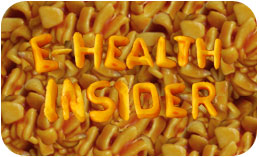Quiz of the Year
- 5 January 2009
E-Health Insider invited readers to test their knowledge of e-health in 2008 in our Christmas and New Year quiz. The winner, Cornish GP Mark McCartney, described the quiz as “addictive.”
We’ve now added the answers, so you can check whether you had everything right – or find out what had you stumped.
 1. Alphabet spaghetti
1. Alphabet spaghetti
What do the following acronyms that crop up in E-Health Insider stand for?
|
CSC CRS SUS SPfIT NSTS |
BI NAO PAC PACS EHTEL |
| Alphabet spaghetti: click for the answers |
2. Putting names to faces
Name the UK healthcare and IT figures shown in the pictures below. Note: the pictures and the clues are there to help. But the pictures and the clues have been muddled up. So you’ll also need to match the pictures to the names, once you have them.
 |
a. Schh – you know who… joined the Department of Health in September. |
 |
b. This Bolton Wanderers’ fan was declared the 49th most important person in UK healthcare. |
 |
c. He resuscitated a fellow peer in the Lords but stifled rumours of “polyclinics for all.” |
 |
d. Hark! This singing former solicitor commissioned a review of NHS IT. |
 |
e. This NHS IT manager heard she’d won a major prize by text message. |
| Putting names to faces: click for the answers |
3. Quote unquote
The following quotes and their respective speakers have been mixed up; see if you can match them up again.
a. “You could argue that we’ve had an IT strategy without an information strategy.”
Sir Bruce Keogh reflects as he steps down as interim director general of informatics.
b. “Mutual demonisation… has to a large extent overshadowed sensible debate.”
EHI editor, Jon Hoeksma is interviewed in the Financial Times about national programme acute sector deployments.
c. "The internet and web 2.0 have led to people becoming partners in their care rather than grateful recipients."
Matthew Swindells, reflects on the Darzi report and the Health Informatics Review.
d. “…this key part seems to be simply stuck. It has ground to a halt.”
Sir Muir Gray introduces EHI’s Health 2.0 research report.
e. “The report of the revolution will, like all reports of revolutions, please some and frighten others, but the accuracy and insights are important for all.”
Professor Patricia Greenhalgh and her team from University College London reflect on the summary care record early adopters.
| Quote unquote: click for the answers |
4. Vital statistics
Match the number to the description:
|
a. GP2GP transfers recorded by April 2008. |
600 |
|
b. Page views on the E-Health Insider site since January 1 2008. |
100,000 |
|
c. Number of bookings hit by Choose and Book in August 2008. |
10 |
|
d. Number of digits in England’s NHS number. |
4 million |
|
e. Number of people taking part in a large scale trial of NHSmail in December. |
10 million |
| Vital statistics: click for the answers |

5. And so farewell
There were some interesting departures in 2008. Who or what were they?
a. This husky slayer went to Oz.
b. Healthcare Computing at Harrogate will never be the same without this organiser.
c. Goodbye to the sick note – what replaces it?
d. Who bade a corporate farewell to Southern England?
e. Who left NHS Connecting for Health to become chief executive of the Independent Reconfiguration Panel, a body that advises on NHS mergers and service changes?
| And so farewell: click for the answers |




